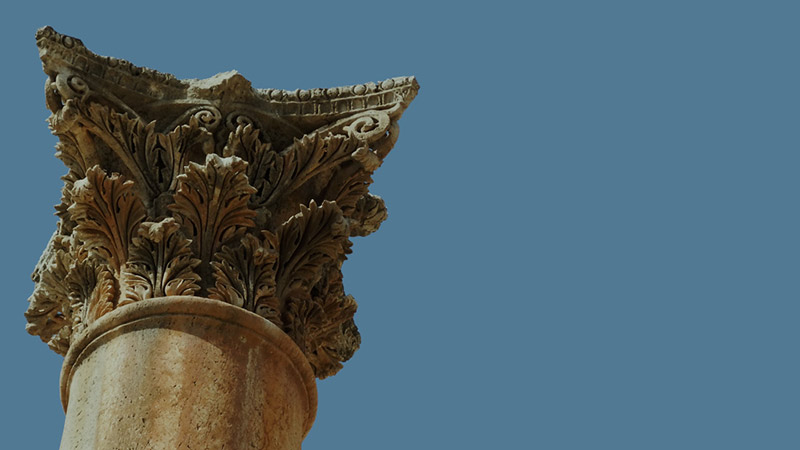More Results
Showing 12 of 51
Encyclopedia

Standing Stones
Sacred StonesLong before the Israelites entered Canaan, pagans in the Middle East erected sacred stones to honor their gods, to declare covenants and treaties between cities, or to honor an important event that could only be explained by the super...
MORE
Synagogue of Gamla
The remains of this synagogue, one of the oldest found in Israel, are outlined in this photograph. It apparently functioned as a community center because no specifically religious artifacts were found in it. However, the mikveh (ritual bath) uncov...
MORE
Synagogue of Korazin
Korazin was one of the cities where "most of his miracles had been performed" (Matt. 11:20). Typical of Galilean towns of the time, the synagogue occupied a prominent place on an elevated platform in the center of town, symbolizing the i...
MORE
Synagogues of Jesus' Time
Synagogues continued to be a focal point for Jewish life during the first century. By the time Jesus' ministry began, a synagogue was found in most towns of Galilee. The Gospels specifically mention those of Nazareth (Matt. 13:54) and Capernaum (M...
MORE
The Ark of the Covenant
The ark of the covenant was a symbol of God's presence among the Israelites a visual reminder that the one true God had made a covenant with them. It was so important to God that he described the arks construction before describing any other sacre...
MORE
The Temple Mount at Jerusalem
God despised the Canaanite high places where pagan worship was carried out. His orders to the Israelites were to destroy them. Yet God communicated with his people through their culture. He allowed them to establish high places where he could meet...
MORE
The Theater at Beth Shean
This spectacular theater was built during the Roman period in the Decapolis city of Beth Shean, known also by its Greek name, Scythopolis. It was more than 360 feet in diameter and seated over 7,000 people. As seen here, one tier of seats remains....
MORE
The Theater at Caesarea
Herods' love of Hellenistic culture and his desire to introduce it to the Jewish nation is illustrated clearly by the theater at Caesarea. Apparently, this structure was built outside the city because its obscene and bawdy performances may have cr...
MORE
The Theater at Ephesus
In the world of the early believers, the theater was a significant institution for communicating the Hellenistic view of the world. Every major city in the Roman world had a theater, and the theater in Ephesus was spectacular. The Greek king Lysim...
MORE
The Theater at Hierapolis
The first-century theater of Hierapolis, one of the best-preserved theaters in Asia, clearly demonstrates the city's sophistication at the time Epaphras founded a church there. The carvings below the stage, which was twelve feet high, are in remar...
MORE
Theater at Beth Shean, The First Tier
This photograph displays the remains of the first tier of seats in the theater. The elaborate stone benches are fitted into foundations cut into bedrock on this first section.The seats are carefully shaped with a lip edge for spectators' comfort. ...
MORE
Theater at Beth Shean-Stage
Though covered by wooden panels today, it was originally covered with stone. It is built on arches with drainage channels beneath it.Behind the stage stood scaenae frons a backdrop for the stage, including a row of granite and marble columns and s...
MORE

















